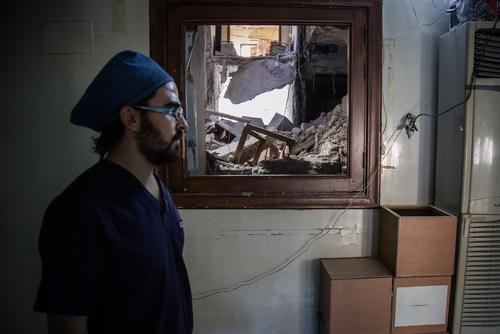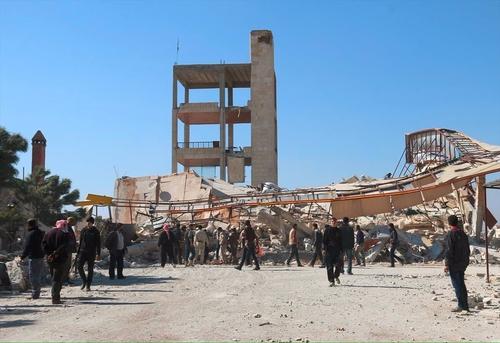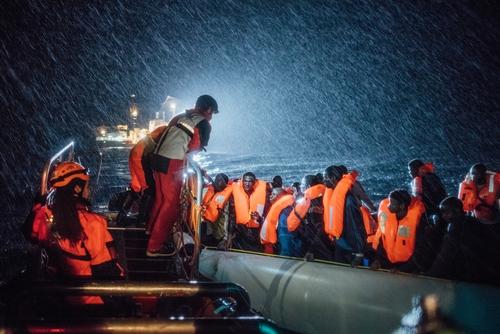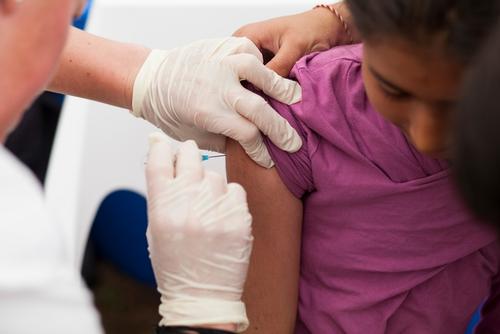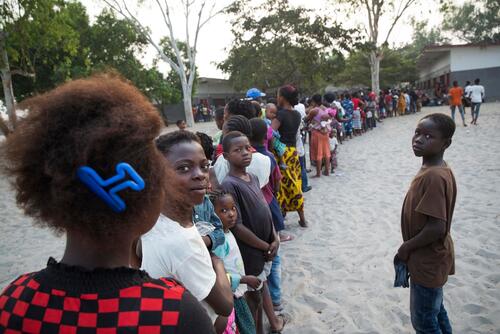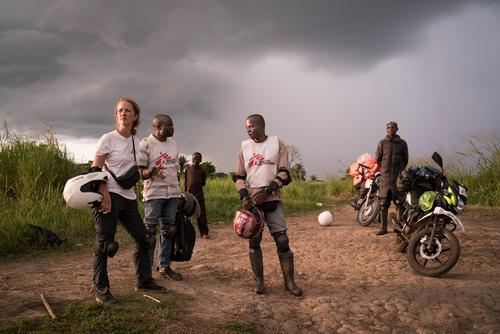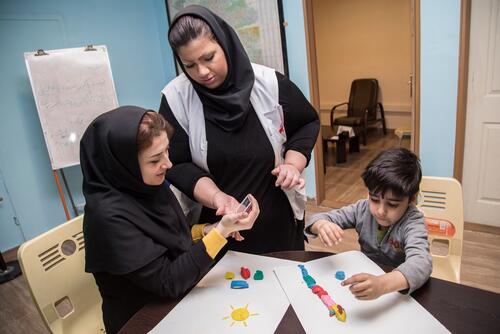In 2016, a devastating humanitarian crisis continued to unfold in Nigeria, largely unnoticed by the rest of the world.
Caught between attacks by the armed group Boko Haram and the counterinsurgency operations of the armed forces, millions of people in northeast Nigeria have been displaced from their homes and are unable to sustain their usual livelihoods of farming, fishing and trade. Entire towns and villages have been razed, and infrastructure, including healthcare facilities, destroyed. Thousands of children have succumbed to the deadly combination of malnutrition, measles and malaria in Borno state.
In Maiduguri, the state capital, the population has more than doubled to over two million since 2014, with the arrival of people fleeing insecurity. This has put an additional strain on the infrastructure, which was already struggling to cope in the country’s first financial recession in 25 years. Displaced people in Maiduguri live in extremely precarious conditions, either among the host population, sleeping in the streets, or in a series of informal settlements without adequate shelter, water or sanitation, where they are vulnerable to violence, abuse and communicable diseases. Few can afford food or basic lifesaving healthcare.
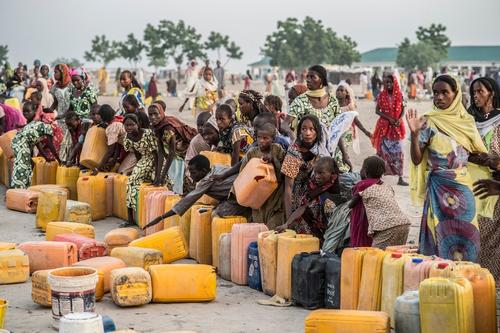
MSF has had a permanent presence in Maiduguri since 2014, treating malnutrition, providing maternal health services and responding to outbreaks of cholera and measles. The MSF team based in the city had to remain small, but was one of the few international organisations present in Borno. Until 2016, rampant insecurity, as well as difficulties in convincing the authorities of the scale of the crisis, prevented MSF from expanding their response. However, epidemiological surveys conducted in informal settlements in the city revealed evidence of extreme malnutrition and mortality during the first nine months of the year, affecting children in particular.
In the summer, suspicions that the plight of those living outside the capital was just as extreme were confirmed. The team had been unable to leave Maiduguri due to active conflict throughout the state, until the spring, when the Nigerian armed forces began to allow certain aid organisations access to towns that had fallen under their control, provided that they were accompanied by armed escorts. MSF usually refuses armed escorts in order to maintain a distinction between military and humanitarian operations. However, in June, more than 1,000 emaciated women and children were evacuated by the army to Maiduguri from Bama, a town 70 kilometres away. After screening and treating this group for malnutrition, MSF made the exceptional decision to accept an armed escort to assess the situation in Bama. Upon arrival, the team found thousands of displaced women and children living in camps under military control, with almost no access to food, clean water or healthcare. Malnutrition rates were far above what constitutes a crisis, and there were signs that many people had already died.
MSF began offering assistance in Bama, and over the following months managed to access numerous other towns across the state. In many locations, the teams found similarly appalling rates of malnutrition and mortality. Given the lack of an adequate aid response, MSF teams started to provide healthcare and nutritional support, improve access to water and sanitation, conduct vaccinations, and distribute food and relief items in over 20 sites in Maiduguri and 11 other towns in the state. MSF data helped to convince the national authorities and international aid agencies of the severity and scale of the emergency. By the end of 2016, the World Food Programme and other aid organisations had begun to implement large-scale interventions.
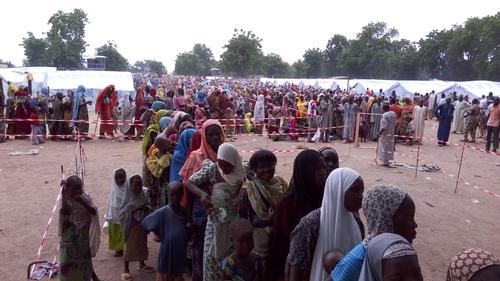
As the year drew to an end, the emergency was far from over, with mass displacement and active conflict continuing and basic health infrastructure practically non-existent in many locations. Many areas of Borno state are entirely inaccessible for humanitarian organisations and the fate of those stranded there is unknown. The first months of 2017 will be a race against time to save lives and prepare for the next seasonal hunger gap and to try to implement preventive health measures before there is another disease outbreak.
MSF’s work is based on the principles of independence and impartiality, but independent access in Borno state has been a serious challenge. MSF would normally negotiate with all armed groups in a conflict and work to gain the acceptance of the community to make clear that its intention is only to provide medical assistance to people in need, and not to assist one side in a conflict. This independence of action normally allows MSF privileged access to all sides, and helps ensure that all warring parties respect the safety and security of MSF staff and patients.
In this highly insecure context, with very few other aid organisations present, MSF teams have had to make difficult choices and compromises to reach vulnerable communities in desperate situations. MSF teams have had to take extraordinary risks, travelling with armed escorts or using helicopters in an active conflict zone. Meanwhile, access to areas held by Boko Haram is virtually non-existent; similarly MSF and other organisations have little access to the groups of men, women and children subjected to screening by the Nigerian armed forces for indeterminate periods of time. The extent to which Boko Haram will accept MSF interventions is still unclear, but in 2017 our priority will be to continue to negotiate with them, and with the armed forces, who are supported militarily by the UK and the US, regarding our wish for independent access to all people in need, no matter where they are.



